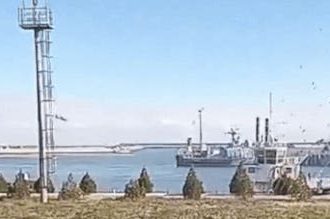Unlock the Editor’s Digest for free
Roula Khalaf, Editor of the FT, selects her favourite stories in this weekly newsletter.
The Israeli army is advancing through the south and east of Gaza city after taking full control of the enclave’s largest hospital and as Prime Minister Benjamin Netanyahu vowed to resist international pressure for a ceasefire.
The fighting in the Zeitoun and Jabalya neighbourhoods, east of al-Shifa hospital, picked up overnight even as an early winter storm set in. Two Israeli soldiers were killed overnight and five over the weekend, the army said.
Hundreds of people on Saturday left the hospital — a focus of Israel’s three-week long ground offensive — joining more than a million displaced people living either outdoors or in crowded UN shelters.
Speaking on Saturday night, Netanyahu said that a limited amount of fuel — no more than two trucks a day — would now be allowed into Gaza to stave off a feared outbreak of disease, a concession he said he made after US pressure.
“This is not a change of policy but a limited, localised response in order to prevent the outbreak of epidemics,” Netanyahu said, adding that the spread of disease would affect Israeli soldiers as well as Gazans.
But he also appeared to reject a call from US President Joe Biden, made in an opinion column in the Washington Post, that the Palestinian Authority, a West Bank-based political rival of Hamas, would play a greater role in Gaza after the war. Without naming the PA, he said he would not back the presence of any element that “supports terrorism, pays terrorists and their families”.
Netanyahu vowed a “diplomatic Iron Dome” — a reference to Israel’s air defence system — to resist mounting international pressure for a ceasefire, unless it accompanied a release of hostages held by Hamas. “I reject these pressures and say to the world: We will continue to fight until victory,” he said.
Israel launched its air and land offensive on the strip after Hamas’s devastating October 7 attack killed about 1,200 people, according to Israeli officials. The Palestinian Islamist group, which has controlled Gaza since 2007, also seized about 240 hostages.
More than 11,500 Palestinians have been killed, many of them women and children, the health ministry said, but cautioned that it has not been able to update that toll since early last week because of a communications blackout. More than 3,000 people are buried in the rubble, the ministry estimated.
Israel’s western allies have advised caution as the army expands operations to the south of Gaza, where the Israel Defense Forces had initially told civilians to flee to as it invaded from the north. The US has asked Israel to keep operations in the south “targeted and precise” to avoid civilian casualties and allow people to move to safe areas, a person familiar with the discussions said on Saturday.
But Yoav Gallant, defence minister, said on Saturday that all of Gaza would soon feel “IDF’s lethal force,” according to a recording of his comments broadcast on Israel’s Kan Radio.
The expanded military operations come as Israeli forces scour al-Shifa hospital for evidence to support its claims that Hamas had built a vast, underground command and control centre underneath it. So far, they have found a tunnel, a small cache of weapons and some radios, according to videos released by the IDF.
Doctors and patients fled the hospital on Saturday, forced to leave behind at least 32 sick babies and about 120 several patients too ill or wounded to move, the UN said. Fewer than two dozen staff remain, the UN said. In recent days the hospital provided shelter to 2,500 people as well as doctors, nurses and at least 600 patients.
Yousef Aboul Rish, the head of the health ministry in Gaza, told the Al Jazeera TV channel that people had left al-Shifa pushing the injured on hospital beds and wheelchairs along a road strewn with bodies from the fighting. “It was a terrifying scene with families and injured children, some with amputated hands who had been asked to walk in a straight line [single file] between two Israeli tanks,” he said.
The UN also reported explosions at two schools where civilians had taken shelter. The head of UNRWA, the UN agency for Palestinian refugees, said that it had received “horrifying images and footage of scores of people killed and injured” after the UN school in Al Fakhoora was struck.
A second school, in Zeitoun, where the Israeli army was expanding operations, was hit twice, with “dozens reported killed including children,” Philippe Lazzarini, UN Commissioner-General for UNRWA, the Palestinian relief agency wrote on social media site X. Israel’s military said it was looking into the incident.
Read the full article here




